JAJSFY4C August 2018 – October 2019 LMR36015-Q1
PRODUCTION DATA.
- 1 特長
- 2 アプリケーション
- 3 概要
- 4 改訂履歴
- 5 概要(続き)
- 6 Device Comparison Table
- 7 Pin Configuration and Functions
- 8 Specifications
- 9 Detailed Description
-
10Application and Implementation
- 10.1 Application Information
- 10.2
Typical Application
- 10.2.1
Design 1: Low Power 24-V, 1.5-A PFM Converter
- 10.2.1.1 Design Requirements
- 10.2.1.2
Detailed Design Procedure
- 10.2.1.2.1 Custom Design With WEBENCH Tools
- 10.2.1.2.2 Choosing the Switching Frequency
- 10.2.1.2.3 Setting the Output Voltage
- 10.2.1.2.4 Inductor Selection
- 10.2.1.2.5 Output Capacitor Selection
- 10.2.1.2.6 Input Capacitor Selection
- 10.2.1.2.7 CBOOT
- 10.2.1.2.8 VCC
- 10.2.1.2.9 CFF Selection
- 10.2.1.2.10 Maximum Ambient Temperature
- 10.2.2 Application Curves
- 10.2.3 Design 2: High Density 12-V, 1.5-A FPWM Converter
- 10.2.1
Design 1: Low Power 24-V, 1.5-A PFM Converter
- 10.3 What to Do and What Not to Do
- 11Power Supply Recommendations
- 12Layout
- 13デバイスおよびドキュメントのサポート
- 14メカニカル、パッケージ、および注文情報
パッケージ・オプション
メカニカル・データ(パッケージ|ピン)
- RNX|12
サーマルパッド・メカニカル・データ
- RNX|12
発注情報
10.2.3.3 Application Curves
Unless otherwise specified the following conditions apply: VIN = 12 V, TA = 25°C. The circuit is shown in Figure 18, with the appropriate BOM from Table 7.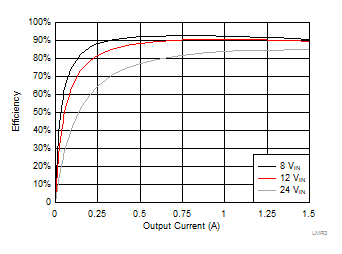
| VOUT = 5 V | 2100 kHz |
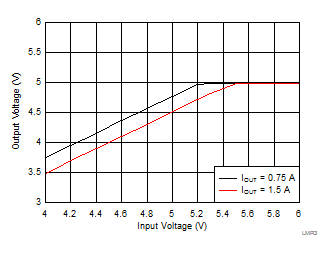
| VOUT = 5 V | 2100 kHz |
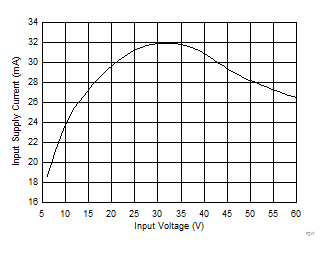
| VOUT = 5 V | IOUT = 0 A | RFBT = 100 kΩ |
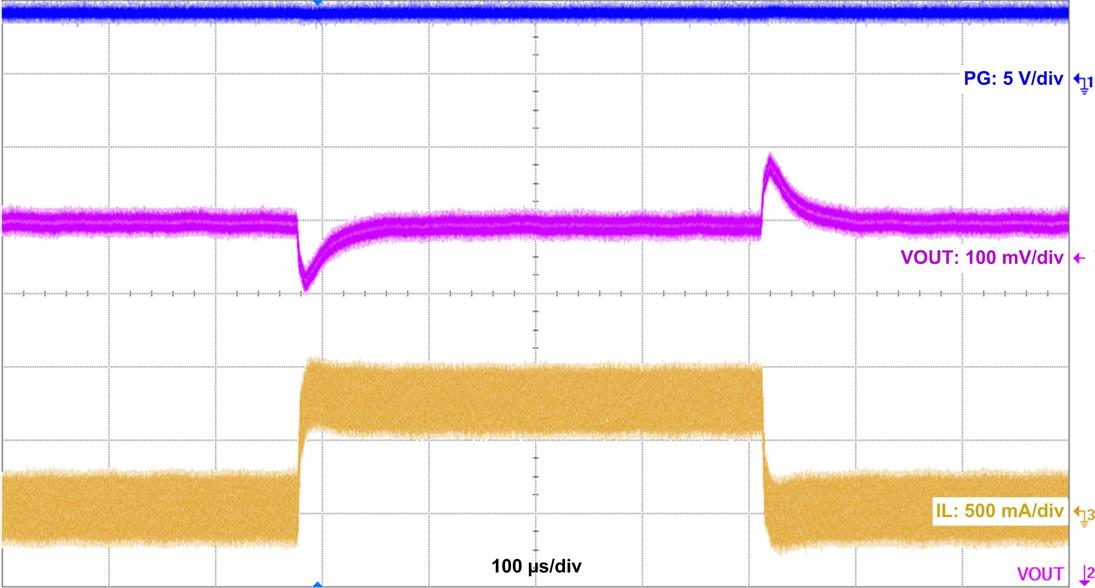
| VOUT = 5 V | Slew Rate = 1 µs/A | 2100 kHz | ILOAD= 0 A - 0.75 A |
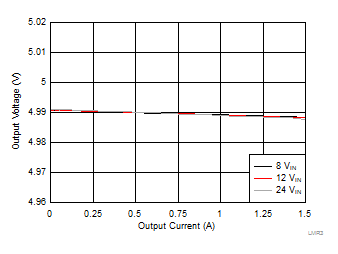
| VOUT = 5 V | 2100 kHz |
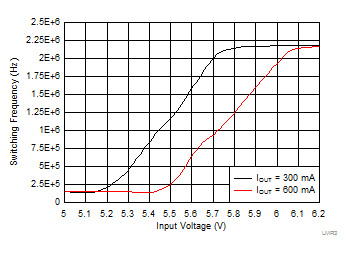
| VOUT = 5 V | 2100 kHz |
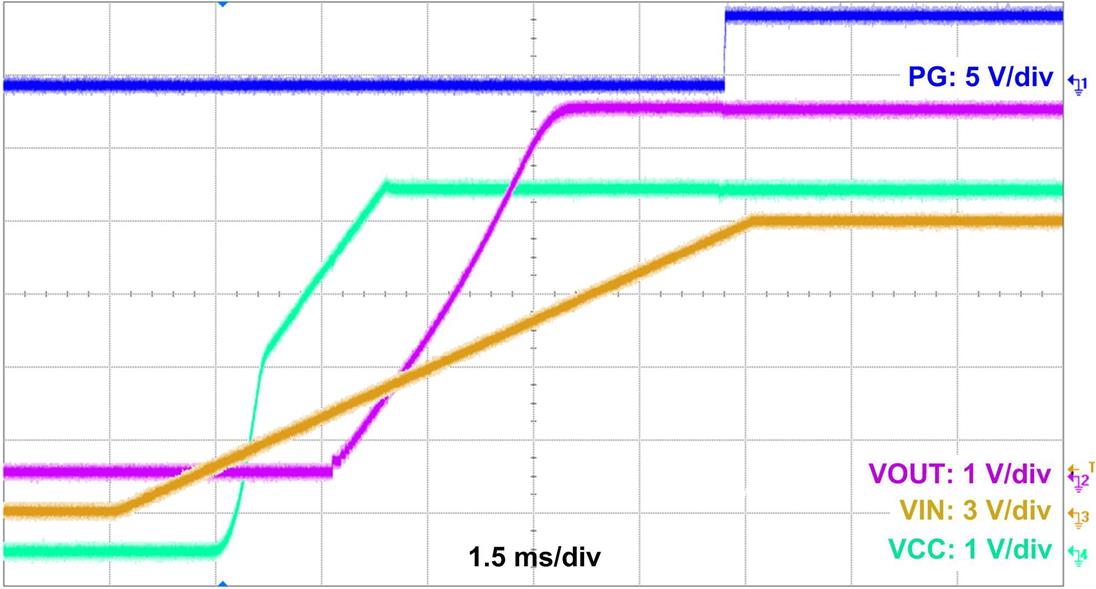
| VOUT = 5 V | 2100 kHz |